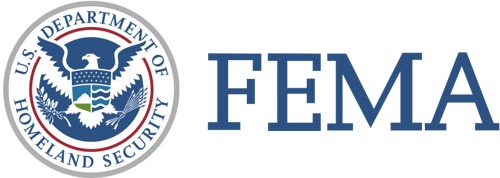Individual Assistance (IA) Grant Program

The FEMA Grant Program
FEMA offers robust support to individuals and families in the wake of a Presidentially declared disaster. From grants that provide for special and personal needs to temporary housing to helping with U.S. Small Business Administration (SBA) loans and more, the FEMA Individual Assistance (IA) Program is an important resource for community members recovering from disaster. FEMA IA Grant Program is managed through FEMA and assisted by GOHSEP.

FEMA Individual Assistance (IA) Declaration
When an emergency or disaster overwhelms local and State resources, the State can request Federal assistance. The Robert T. Stafford Disaster Relief and Emergency Assistance Act (Stafford Act) authorizes the President to issue a major disaster or emergency declaration, or both, when a disaster requires resources beyond the combined capabilities of State and local governmental resources. A declaration can be for either, or all of the following:
FEMA has not publicized the number of damaged homes it considers sufficient to meet the indicator for an IA Declaration. We do know that FEMA considers the number of uninsured homes that experience major damage and/or are destroyed when determining whether to recommend an IA Declaration. FEMA requires each Parish to qualify on its own for the IA Declaration.
44 Code of Federal Regulations (CFR) 206.48 (b) discusses factors that measure the severity, magnitude and impact of the disaster and used to evaluate the need for IA under the Stafford Act. The following are some of the factors that generally indicate a greater need for assistance:
- Number of damaged and/or destroyed homes.
- Concentration of damages.
- Trauma – A large number of deaths or injuries, large scale disruption of normal community functions and services, emergency needs such as extended or widespread loss of power or water.
- Special populations – Such as low-income, elderly, or unemployed, Native American, under-served populations and/or those that are physically challenged.
- Voluntary agency assistance – Consider extent to which voluntary agencies and State or local programs can meet the needs of disaster victims.
- Available insurance proceeds.
- Average amount of individual assistance by State.
FEMA Individuals + Households Program (IHP)
The FEMA Individuals and Households Program (IHP) provides financial assistance to individuals and households affected as a direct result of a Presidentially declared major disaster or emergency. Assistance is available for those who are uninsured or underinsured, have necessary expenses and serious needs, and are unable to meet those expenses or needs through other means. Up to $33,000 is available in financial help (adjusted yearly), although some forms of IHP assistance have other limits.
This program supports recovery by providing the financial means to disaster survivors to secure adequate interim and long-term housing, in addition to other necessary expenses and serious needs.
Who can Participate in IHP?
IHP is available to those:
- In Presidentially declared emergency or major disaster areas.
- Whose primary residence has been damaged or destroyed by the disaster.
- Whose disaster losses are not covered by insurance or are underinsured.
- Who are citizens of the United States, a non-citizen national or a qualified alien, or is in a household where a member of the household is a citizen of the United States, a non-citizen national or a qualified alien.
- Located in a Special Flood Hazard Areas (SFHA) and the homeowner complies with flood insurance purchase requirements and local flood codes and requirements.
What Activities/Services are Funded Through IHP?
IHP includes grants for housing assistance for either temporary housing and/or home repairs, and other needs assistance (ONA). ONA can include assistance for personal property, medical, dental, transportation and other personal or special needs to help people recover from a disaster.
See the side bar for a detailed view of services and eligible activities. Types of help available may be different for different disasters.
Other programs may also be available as a result of an IA Declaration, including:
Crisis Counseling Assistance and Training Program
The Crisis Counseling Assistance and Training Program offers mental health assistance and training activities, providing short-term interventions to mitigate stress, provide emotional and other support to help survivors in their recovery process.
Disaster Unemployment Assistance (DUA)
The Disaster Unemployment Assistance (DUA) program provides unemployment benefits and reemployment services to individuals who have become unemployed as a result of a major disaster and who are not eligible for regular State unemployment insurance (UI).
Disaster Legal Services
This program provides legal assistance to low-income individuals who, prior to or because of a disaster, are unable to secure legal services adequate to meet their disaster-related needs.
Cost Share
FEMA assistance typically has a cost share, meaning that the FEMA Program pays for a portion of the costs needed for recovery and the grant recipient also pays a portion of those costs.
FEMA IA Program has no cost share for housing assistance to the individual applicant.
Other needs assistance (ONA) has a 75/25 percent cost share – FEMA is responsible for 75 percent of the cost and the grant recipients are responsible for the remaining 25 percent cost share. There are exceptions. The ONA cost share is designated in the Robert T. Stafford Emergency Assistance and Disaster Relief Act (Stafford Act) and cannot be waived.
DisasterAssistance.gov
At the DisasterAssistance.gov website, you can:
- Check to see if your Parish has been included in the IA Disaster Declaration.
- Click on Find Assistance on the Home Page or under the Get Assistance tab on the navigation bar. Follow the prompts.
- You can apply online or learn how to apply for assistance that does not have an online application, including programs not managed by FEMA.
Disaster Recovery Center (DRC)
In the aftermath of disasters, FEMA may establish a Disaster Recovery Center (DRC) as a location where individuals impacted by disaster may go for information about FEMA and other disaster assistance programs, or for questions related to an individual case. DRCs include staff from FEMA, State and local government agencies, voluntary agencies and other Federal agencies. The range and type of disaster assistance services offered in a DRC is contingent upon the characteristics of the declared incident, specific recovery activities and the availability of local resources. The types of disaster assistance services that are typically in a DRC include:
- Access to FEMA disaster assistance programs.
- Access to SBA loan programs.
- Access to information about rebuilding and repairing property.
- Access to other Federal, State and local government programs (e.g., tax assistance, unemployment information and social services benefits).
When warranted, other FEMA national disaster assistance partners may offer additional non-governmental services, such as legal or financial counseling. DRCs, whenever possible, are located in pre-existing fixed facilities identified and provided by the State. However, FEMA is also prepared to and may deploy mobile DRCs to provide temporary DRC support until fixed facilities are available.
Each Parish can play a critical role in the success of a DRC in delivering assistance to citizens by having potential sites pre-selected before an event. Selected sites should:
- Be centrally located to areas of damage.
- Be a public facility – with no cost lease.
- Not require the DRC to co-locate with Points of Distribution (POD) sites or food stamp distribution centers.
- Have parking and be handicapped accessible.
Once selected, a mandatory inspection by a FEMA Inspection Team occurs prior to signing a lease.





